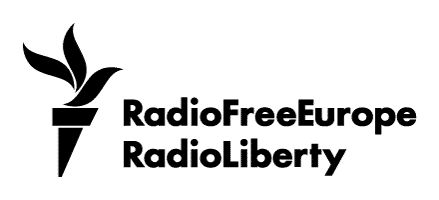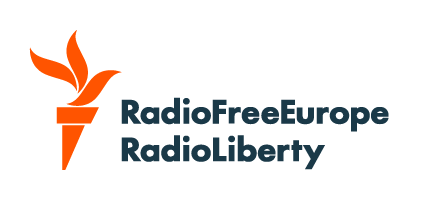As world leaders gather in France on June 6 to commemorate the 70th anniversary of the D-Day landings, the shadow of World War II still hangs heavily over Europe.
Perhaps the darkest part of that shadow is cast by the titanic struggle between Germany and the Soviet Union that left millions of soldiers and civilians dead and devastated vast swathes of Eastern Europe and European Russia.
And the memory of that struggle partly shapes the way Germans view Russia's resurgence under President Vladimir Putin and his assertive policies in the former Soviet countries. The conflict's legacy, and lingering German "war guilt," lead many Germans to be more inclined to seek accommodation with Russia, analysts say.
Andreas Umland, a political scientist at the Kyiv-Mohyla Academy, says Germans, primarily, are acutely concerned about the danger of conflict with Russia. Since the Cold War, Germans have felt that any major East-West conflict would likely be played out on their territory.
In addition, however, a certain feeling of "war guilt" shapes German attitudes, Umland says. "There is also this feeling that Germany is somehow indebted to Russia because of World War II," he says, "and because of the suffering that Russians have gone through in World War II. And that is then often also a factor in the assessment of the Russian-Ukrainian conflict. Although of course Ukraine was also a part of World War II and had its share in bringing down German fascism."
According to Soviet figures on civilian and military deaths, Belarus lost 25.3 percent of its prewar population during the war. Ukraine lost 16.3 percent, while Russia lost 12.7 percent. More than 3.5 million Ukrainian citizens died during the brutal Nazi occupation of their entire territory.
Nonetheless, many Germans view Russia as the successor state to the Soviet Union, not only in legal terms but in historical ones as well. Many older Germans, following the rhetoric of the Nazi era, still refer to World War II as "the war against Russia."
And as a result, analysts say, many Germans have conflated Soviet losses in the war with Russia's.
In an essay published in the Hamburg-based weekly "Der Zeit" last month, analyst Bernd Ulrich wrote that lingering German war guilt toward Russia, ironically, prompts Germans to downplay Ukrainian claims to self-determination. "Should [Ukrainians] not be allowed into the EU because Germans justifiably have a guilty conscience vis-a-vis Russians?" Ulrich wrote. "The fact that Germans and Russians are once again making decisions about the fate of Ukraine would be a perverse lesson to learn from history for this country, which suffered under both nations like no other."
Between Russia And The West
German attitudes toward Putin's Russia can be difficult to gauge. In one poll in April, 49 percent said they wanted Germany to take a middle position between Putin and the West, while only 45 percent said Germany should be solidly with the West.
A majority of Germans oppose stronger sanctions against Russia, while a poll in March found that 55 percent of Germans have either "a lot" or "some" sympathy for the idea that the Ukrainian Black Sea peninsula of Crimea should be part of Russia's zone of influence.
However, a 2012 Pew poll found that 77 percent of Germans had little or no confidence in "Russian President Vladimir Putin to do the right thing regarding world affairs." Only 54 percent of U.S. respondents felt that way.
There are many historical factors shaping German attitudes, says Ulrich Speck, a visiting scholar with Carnegie Europe in Brussels. "I think we have many chapters in the German-Russian relationship and it is not only, or even primarily, World War II which is relevant for German views of Russia," he says. "It is also, maybe much more, the Cold War. During the Cold War, Russia was very much a threat and Germany was afraid of nuclear annihilation."
Germans remember being divided and dependent on U.S. security guarantees. "This memory is still alive -- the view that Germany is rather weak and cannot stand a confrontation with Russia," Speck notes. "This is something that is deep in the political mentality."
Likewise, Umland says the "main motivation" pushing Germans to seek accommodation with Russia is "a fear of war." "I think this is the main reason," he adds, even more important than the two countries' deep economic ties.
Speck also mentions German appreciation of the role the Soviet Union played in their country's reunification, a role that Putin specifically referred to in an appeal to Germans during his speech to the Russian legislature following the annexation of Crimea in March.
Other factors are also playing a role. The German left is traditionally anti-American and, as such, responds positively to Russia's criticism of the post-Cold War "mono-polar" world order. On the other hand, Russia's social and religious conservatism and unabashed nationalism appeals to the German right.
In addition, Russia employs soft-power techniques to exploit these sympathies. The Berlin-based newspaper "Der Welt am Sonntag" and the Hamburg-based weekly "Der Spiegel" have both published recent exposes on the shadowy network of Russia supporters that has been trying to shape public discourse in Germany.
The Ruptly news agency, a branch of Russia Today, has a "posh location" overlooking the Reichstag, indicating "the Kremlin doesn't seem to mind spending quite a bit of money to disseminate its view of the world from here," "Der Spiegel" observed. Several German media outlets subscribe to Ruptly and distribute their materials.
Analyst Umland says such exposes may be having an effect. "There is a growing acknowledgement in the German public that there is this information war coming from Russia which is trying to manipulate public opinion," he says. "At least among journalists, I think, the skepticism towards Russia has grown during the last weeks."
Perhaps the darkest part of that shadow is cast by the titanic struggle between Germany and the Soviet Union that left millions of soldiers and civilians dead and devastated vast swathes of Eastern Europe and European Russia.
And the memory of that struggle partly shapes the way Germans view Russia's resurgence under President Vladimir Putin and his assertive policies in the former Soviet countries. The conflict's legacy, and lingering German "war guilt," lead many Germans to be more inclined to seek accommodation with Russia, analysts say.
Andreas Umland, a political scientist at the Kyiv-Mohyla Academy, says Germans, primarily, are acutely concerned about the danger of conflict with Russia. Since the Cold War, Germans have felt that any major East-West conflict would likely be played out on their territory.
In addition, however, a certain feeling of "war guilt" shapes German attitudes, Umland says. "There is also this feeling that Germany is somehow indebted to Russia because of World War II," he says, "and because of the suffering that Russians have gone through in World War II. And that is then often also a factor in the assessment of the Russian-Ukrainian conflict. Although of course Ukraine was also a part of World War II and had its share in bringing down German fascism."
According to Soviet figures on civilian and military deaths, Belarus lost 25.3 percent of its prewar population during the war. Ukraine lost 16.3 percent, while Russia lost 12.7 percent. More than 3.5 million Ukrainian citizens died during the brutal Nazi occupation of their entire territory.
Nonetheless, many Germans view Russia as the successor state to the Soviet Union, not only in legal terms but in historical ones as well. Many older Germans, following the rhetoric of the Nazi era, still refer to World War II as "the war against Russia."
And as a result, analysts say, many Germans have conflated Soviet losses in the war with Russia's.
In an essay published in the Hamburg-based weekly "Der Zeit" last month, analyst Bernd Ulrich wrote that lingering German war guilt toward Russia, ironically, prompts Germans to downplay Ukrainian claims to self-determination. "Should [Ukrainians] not be allowed into the EU because Germans justifiably have a guilty conscience vis-a-vis Russians?" Ulrich wrote. "The fact that Germans and Russians are once again making decisions about the fate of Ukraine would be a perverse lesson to learn from history for this country, which suffered under both nations like no other."
Between Russia And The West
German attitudes toward Putin's Russia can be difficult to gauge. In one poll in April, 49 percent said they wanted Germany to take a middle position between Putin and the West, while only 45 percent said Germany should be solidly with the West.
A majority of Germans oppose stronger sanctions against Russia, while a poll in March found that 55 percent of Germans have either "a lot" or "some" sympathy for the idea that the Ukrainian Black Sea peninsula of Crimea should be part of Russia's zone of influence.
However, a 2012 Pew poll found that 77 percent of Germans had little or no confidence in "Russian President Vladimir Putin to do the right thing regarding world affairs." Only 54 percent of U.S. respondents felt that way.
There are many historical factors shaping German attitudes, says Ulrich Speck, a visiting scholar with Carnegie Europe in Brussels. "I think we have many chapters in the German-Russian relationship and it is not only, or even primarily, World War II which is relevant for German views of Russia," he says. "It is also, maybe much more, the Cold War. During the Cold War, Russia was very much a threat and Germany was afraid of nuclear annihilation."
Germans remember being divided and dependent on U.S. security guarantees. "This memory is still alive -- the view that Germany is rather weak and cannot stand a confrontation with Russia," Speck notes. "This is something that is deep in the political mentality."
Likewise, Umland says the "main motivation" pushing Germans to seek accommodation with Russia is "a fear of war." "I think this is the main reason," he adds, even more important than the two countries' deep economic ties.
Speck also mentions German appreciation of the role the Soviet Union played in their country's reunification, a role that Putin specifically referred to in an appeal to Germans during his speech to the Russian legislature following the annexation of Crimea in March.
Other factors are also playing a role. The German left is traditionally anti-American and, as such, responds positively to Russia's criticism of the post-Cold War "mono-polar" world order. On the other hand, Russia's social and religious conservatism and unabashed nationalism appeals to the German right.
In addition, Russia employs soft-power techniques to exploit these sympathies. The Berlin-based newspaper "Der Welt am Sonntag" and the Hamburg-based weekly "Der Spiegel" have both published recent exposes on the shadowy network of Russia supporters that has been trying to shape public discourse in Germany.
The Ruptly news agency, a branch of Russia Today, has a "posh location" overlooking the Reichstag, indicating "the Kremlin doesn't seem to mind spending quite a bit of money to disseminate its view of the world from here," "Der Spiegel" observed. Several German media outlets subscribe to Ruptly and distribute their materials.
Analyst Umland says such exposes may be having an effect. "There is a growing acknowledgement in the German public that there is this information war coming from Russia which is trying to manipulate public opinion," he says. "At least among journalists, I think, the skepticism towards Russia has grown during the last weeks."






